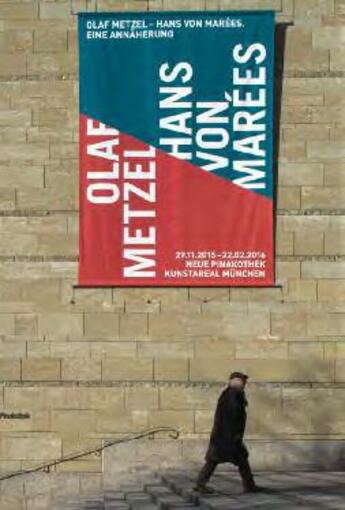-
Date de parution : 08/11/2016
-
Editeur :
Snoeck
-
EAN : 9783864421792
-
Série :
(-)
-
Support :
Papier
Résumé:
Opinions are divided when it comes to Hans von Marées' work (1837-1887); some considers him a failed artist, for others he laid the foundations for modern ism in Germany. What is the reason for this lasting contradiction with which his painting is perceived? And what is the significance of his... Voir plus
Opinions are divided when it comes to Hans von Marées' work (1837-1887); some considers him a failed artist, for others he laid the foundations for modern ism in Germany. What is the reason for this lasting contradiction with which his painting is perceived? And what is the significance of his work, exhibited in its own room at Neue Pinakothek in Munich (no. 15), for a contemporary artist like Olaf Metzel (*1952)? Initially, the rapprochement by means of a double exhibition was proposed by Metzel, since the sculptor deliberately sought a debate on the grounds that the neoidealistic approach by the German Romans, a group of German artists and literary figures in Rome to which von Marées belonged, forms part of those much-vaunted European visions, that are today under attack from politically opposite directions.
Paintings by Hans von Marées are juxtaposed with some of the most advanced sculptures by Olaf Metzel.
He presents the classical themes of portrait and human figure by the considered way he places his sculpture »Turkish Delight« (2006). He confidently allows political worlds to collide: in the large alu - minum work »Lampedusa« (2015) with newspaper articles on the refugee issue, already the teaser photos cause trepidations - no comparison to the poetic and divine gardens of historical painting. Yet this is precisely how Olaf Metzel brings the oeuvre of his colleague up-to-date while, at the same time, proving the point for the never-ending need for artistic provo - cation. The accompanying volume exten - sively documents the exhibition and features a series of lectures on the current status of the debate to Hans von Marées.
Donner votre avis














